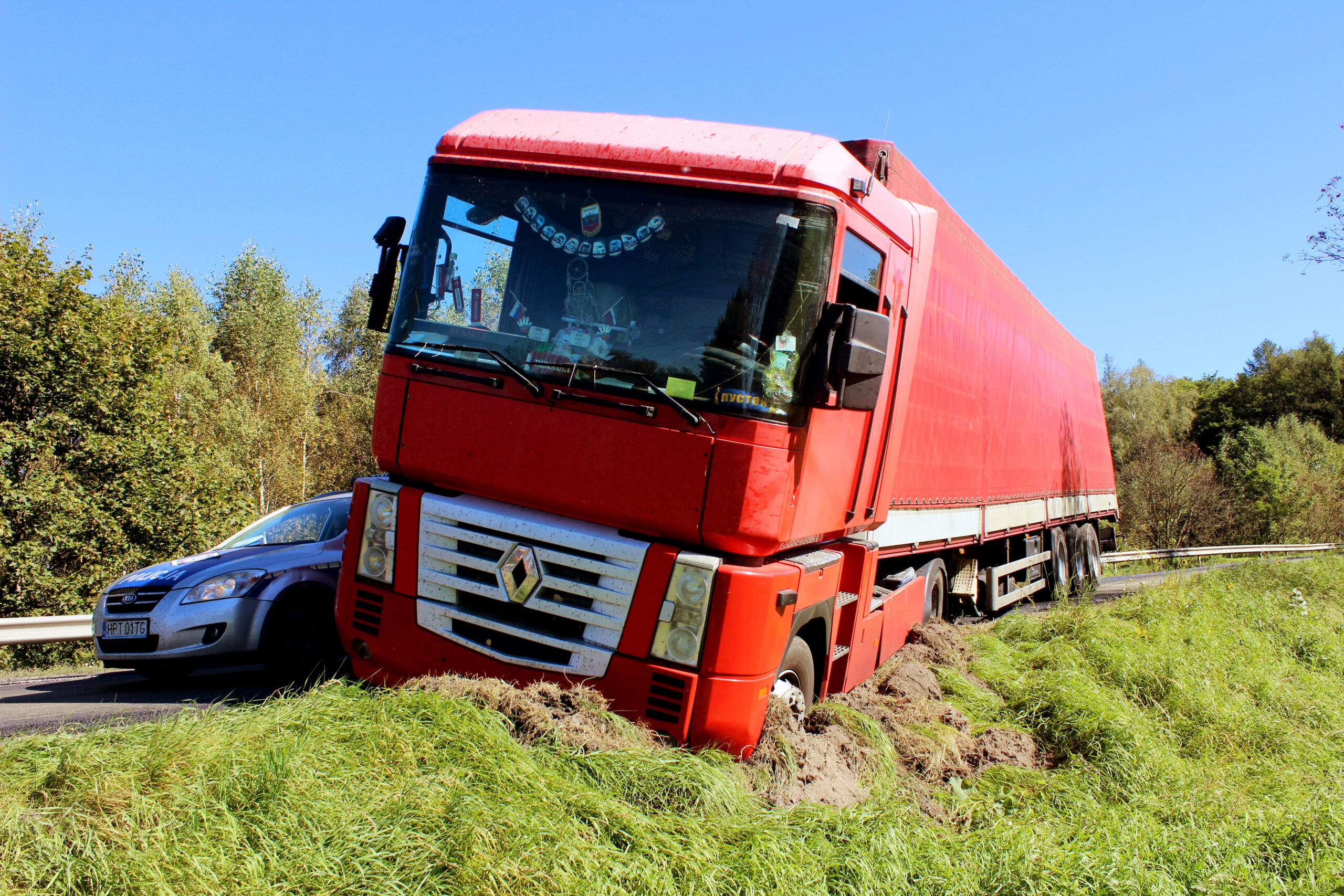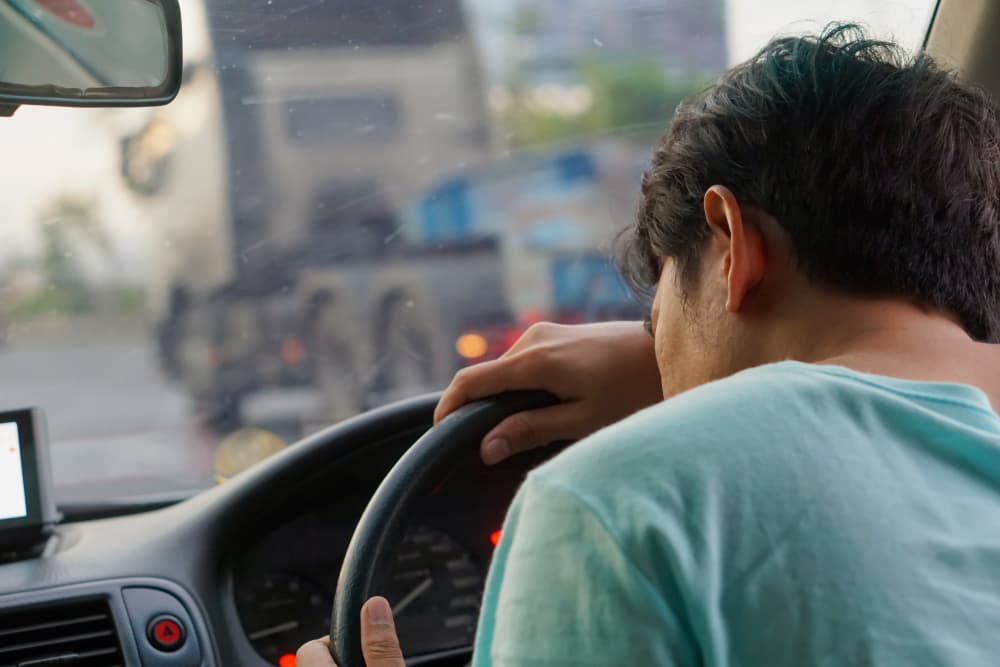Dump and garbage trucks are a common sight in every city and town across the country, including Phoenix. In fact, many people see dump and garbage trucks collecting trash and moving through neighborhoods every single day.
These large trucks are often more dangerous than most people think. Due to their sheer size, blind spots, and frequent stops, garbage trucks can pose a danger to other drivers on the road, bicyclists, motorcyclists, and pedestrians.
The city of Phoenix uses about 250 trucks to pick up trash from over 400,000 households every single week, according to KTAR News. If you suffered injuries in an accident involving a dump or garbage truck, consider speaking with a lawyer.
Regardless of whether your crash involved a privately owned or government-owned refuse truck, you might be entitled to compensation. Consult with a knowledgeable Phoenix truck accident lawyer to discuss your liability and compensation in your specific case.
Types of Dump and Garbage Trucks
There are five types of dump and garbage trucks that drive through neighborhoods and collect trash across the United States:
- Rear-loader trucks. This is the classic kind of a truck in which garbage collectors hang off the back of the vehicle. These trucks have a fork that picks up trash from the back of the vehicle.
- Front-loader trucks. These trucks have a hydraulic forklift that dumps trash over the front of the vehicle.
- Side-loader trucks. These trucks use a robotic arm that picks up trash from the side of the vehicle.
- Roll-off garbage trucks. While the above-mentioned types of dump and garbage trucks collect and carry residential garbage to a landfill, roll-off trucks focus on industrial-grade waste. These trucks have a large bin that they drop curbside, fill with trash, and then pick up by the truck with a hydraulic lift.
- Grapple trucks. These trucks, which have a grapple loader mounted to their frame, are used for loading and hauling large objects.
Often, garbage and dump trucks cause devastating collisions in which victims suffer disabling and life-threatening injuries. Occupants of passenger cars, motorcycles, and bicycles are likely to suffer severe and fatal injuries when involved in an accident with a dump or garbage truck.
Types of Accidents Involving Dump and Garbage Trucks
Some of the most common types of accidents involving garbage and dump trucks include:
- Collisions with motor vehicles
- Collisions with motorcycles
- Collisions with bicyclists and pedestrians
- Dumping waste that hits another vehicle
- Dumping waste that hits pedestrians or bicyclists
In one year alone, garbage and refuse trucks were responsible for 124 fatalities in the United States, according to the Federal Motor Carrier Safety Administration (FMCSA).
Why Do Dump and Garbage Trucks Cause Accidents?
Many factors contribute to collisions involving dump and garbage trucks. These factors include:
- Reversing. Reversing can be a challenge even for experienced drivers of garbage trucks. That is why a large percentage of garbage and refuse truck crashes occur when the truck is backing up. These trucks have massive blind spots, which is why the driver may not be able to see moving or parked vehicles behind them, not to mention pedestrians who can get in the way.
- Frequent stops. A garbage truck makes frequent stops because these trucks are supposed to stop at every serviced home or business to collect trash. For this reason, crashes are likely to occur when the truck makes an unexpected stop or other vehicles fail to maintain a safe distance.
- Bad weather conditions. Garbage and dump trucks work all the time, even in inclement weather. Such weather conditions as rain, hail, and fog can reduce the driver’s visibility, create slippery roads, and cause other hazards that contribute to accidents.
- Driver error. A large number of devastating crashes occur when drivers of garbage trucks make mistakes and drive negligently. Such negligent behaviors as speeding, failure to yield the right of way, using a cell phone while driving, failure to signal one’s intention to turn or change lanes, and others can result in preventable accidents. Operators of garbage trucks also put others at risk when they drive under the influence of alcohol or drugs, drive while fatigued, or engage in aggressive behaviors such as tailgating and cutting other vehicles off.
- Mechanical problems. Not all companies that own and operate garbage and refuse trucks properly and adequately inspect and maintain their vehicles. This results in many preventable crashes due to mechanical failures, such as malfunctioning brakes. Other examples of mechanical issues include faulty brakes, worn tires, broken lights or turn signals, and problems with the engine and steering.
- Falling debris. It is not uncommon for collected trash or other debris to drop out of dump and garbage trucks. Falling debris can become hazards for other motorists, contributing to devastating accidents. If waste fell out because of improper securement, the driver of the garbage truck or garbage collectors can be liable.
Consider speaking with a knowledgeable truck accident attorney to identify the parties that you might sue for your injuries and damages.
Liability for Dump and Garbage Truck Accidents
When investigating your crash, a lawyer will have to determine what caused the accident and who can be responsible for your resulting damages and losses. A lawyer will interview witnesses, review the police report, look at photos from the scene of the accident, gain access to surveillance or traffic video footage nearby, and take other steps to identify liable parties.
Since garbage and dump trucks are often owned and operated by a private trucking company or a government entity, there may be multiple liable parties, including:
- The driver of the truck. If the garbage or dump truck operator was negligent and your accident occurred because of their negligence, you can hold them responsible for your injuries and losses.
- The truck driver’s employer. If the driver of a dump or garbage truck works for a private company, you can hold the company liable for your accident.
- The owner of the truck. If the driver is not the owner of the truck, you can hold the owner vicariously liable for the collision.
- The maintenance company. If your accident was the result of inadequate maintenance of the garbage or refuse truck, you can bring a claim against the company responsible for vehicle maintenance.
- A government entity. Many garbage and refuse trucks are owned and operated by government entities. If you were involved in an accident involving a truck owned and operated by a city or municipality, you can bring a claim against the liable government entity.
If the accident was preventable, if not for the conduct of the driver of the garbage or dump truck and/or their employer, you might have the right to compensation by pursuing a claim against the liable parties. However, an injured party may need the legal counsel of an experienced attorney to identify all of the liable parties in their unique case and hold them responsible for their injury and resulting losses.
What Compensation Can You Seek After a Garbage Truck Accident?
Since each truck accident is unique, it can be difficult to estimate the value of your claim or the availability of damages in your case. However, you can get a case review from a knowledgeable lawyer to guide you through the types of compensation available in your particular situation.
Often, victims of garbage and refuse truck crashes can seek compensation for:
- Medical bills. If you suffered injuries because of another party’s negligence, that party can be responsible for your medical expenses, both past and future. Medical bills can include the cost of treatment, surgery, rehab and physical therapy expenses, medication costs, and others.
- The cost of repairing your damaged vehicle. When a garbage truck crashes into a passenger vehicle, the owner of the damaged vehicle will most likely incur significant expenses to fix their car. In fact, the accident might total your car or render it not repairable.
- Loss of income. A truck accident victim may miss several weeks or months at work, while some may never regain their pre-injury earning capacity. For this reason, victims of dump and garbage truck accidents can receive compensation for their lost wages and diminished (or lost) earning capacity.
Depending on the severity of your injuries and the impact of the accident on your life, you can also claim:
- Loss of enjoyment of life
- Pain and suffering
- Emotional distress
- Loss of consortium
- Inconvenience
- Disability or disfigurement
- Punitive damages
Each case is different, which is why a consultation with an experienced lawyer may help you understand what types of damages are recoverable in your specific case and what compensation will fairly and fully compensate you for your losses after a garbage truck crash.
Frequently Asked Questions (FAQs) About Dump and Garbage Truck Accidents
What Are the Dangers Associated with Garbage & Dump Trucks?
Due to their size and lack of maneuverability, garbage and dump trucks can pose dangers to both moving and parked vehicles around them.
Garbage and refuse trucks can be dangerous for the following reasons:
- Their size and weight
- Their massive blind spots
- The risk of debris flying out of the truck
- The risk of rollover accidents when the truck is carrying more than the maximum limit
- Frequent stops
- Driving through narrow streets
These and other hazards contribute to thousands of accidents involving garbage and dump trucks every year.
Can You Sue if a Garbage Truck Struck Your Vehicle?
If you sustained injuries because a garbage or dump truck hit your vehicle, you might be entitled to compensation by filing an insurance claim or a lawsuit. There can be multiple defendants named in your lawsuit, including the driver of the truck, the driver’s employer, the city, and others.
However, seeking compensation through a lawsuit can be a complex, time-consuming, and costly process. That is why up to 96 percent of all personal injury cases settle pre-trial. If you are considering filing a lawsuit after a truck accident, speak with a lawyer to discuss your options for compensation and determine if suing liable parties is the right course of action.
How to Determine Liability After a Dump or Garbage Truck Accident?
Determining liability is always a complicated matter, especially if you were involved in an accident with a vehicle owned and operated by the city or a private company. In crashes involving dump and garbage trucks, a detailed investigation may be necessary to identify all potentially liable parties in your particular case.
How to Deal With Insurance Companies After a Garbage Truck Accident?
Most insurance companies require their policyholders to report accidents as soon as possible. Once you notify the insurance company of your garbage truck accident, you should proceed carefully because the insurer may attempt to undervalue or deny your claim.
When speaking with the insurer, stick to the facts and do not give a recorded statement until you speak with a lawyer. Injured victims can benefit from seeking the legal help of a lawyer when dealing with insurance companies to protect their rights and ensure a fair settlement amount in their case.
Do You Need a Lawyer After a Dump or Garbage Truck Accident?

A lawyer will work on your case to ensure that you receive the compensation you are entitled to. Your lawyer will make sure that all liable parties are accountable for their negligence or other types of wrongful conduct that caused or contributed to the dump or garbage truck accident.
Gathering evidence, preparing and filing paperwork, and handling other aspects of your legal claim can seem like a herculean task when recovering from a severe injury.
Dedicate all of your time and energy to your treatment to make sure that you get back on your feet as soon as possible. Your lawyer, meanwhile, will manage your case to protect your rights and fight for maximum compensation.
You should not stress about the insurance claim or legal process, as you can have a legal advocate handling all of this for you. Contact a Phoenix truck accident attorney for more information.



